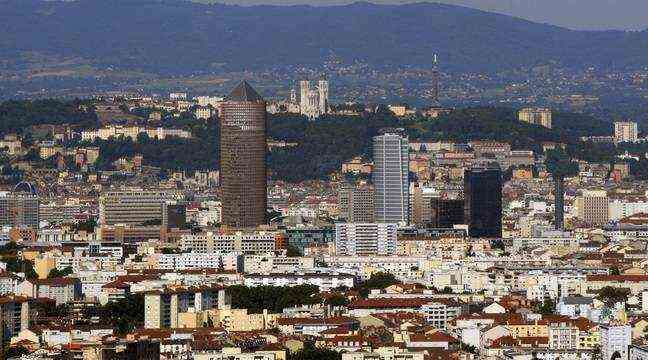On September 2, the government validated the regulation of rents in Lyon and Villeurbanne, a measure launched in Paris in 2019. It consists of limiting the increase in rents in cities of more than 50,000 inhabitants, by capping them at 20% above the median rent recorded in the same area. A measure which now concerns Lyon and its metropolis, the attractiveness of which has resulted in a sharp increase in rents in recent years, causing a marked imbalance between real estate supply and demand.
The rent control is delighted Renaud Payre, vice-president of the metropolis of Lyon and in charge of housing, social housing and city policy, who has made affordable housing his spearhead. “What motivated our commitment to supervise rents is above all for the inhabitants who can no longer find housing,” he reminds 20 minutes. I am thinking in particular of students, young workers, but also of the most modest families who are struggling to find a T1 or T2 with a decent rent. “
A device not always applied
However, this device does not convince the major real estate players. Nicolas Bouscasse, president of the FNAIM du Rhône, issued a press release denouncing the uselessness of this measure, and its harmful consequences. “37% of the market is intermediated, and 63% of housing belong to landlord owners who manage their property themselves,” he explains to 20 minutes. It has been observed for years that the application of the law by these owners was very uncertain. I fear that this regulation is completely ineffective by its non-application by individuals. In Paris, rent control does not work: it is applied in the best case at 50%! “
Renaud Payre recognizes these freedoms with the law: it is to avoid them that he has set up a “metropolitan housing team that will control rental sites, and that residents will be able to call in order to be able to alert the prefect, the only one who can ensure that the law is properly applied. We are probably the first community to say that it is not enough to regulate rents, we must set up a monitoring system. This team will also work to fight against substandard housing. “The president of the FNAIM, for his part, questions the power of control and sanctions of this team:” This brigade will monitor the agencies that are easy to control, since we are well established, but will be more in difficulty when You will have to enter the tenant’s house to see if there is an uncapping of the framework … “
The investments in question
Another concern pointed out by Nicolas Bouscasse, that of a device that would scare investors away. Renaud Payre brushes aside this fear: “Do you really believe that an investor will look for a property 30 or 40 km from the metropolis when he will have guaranteed rent here, admittedly regulated? Investors know how dynamic our territory is, and that by investing in stone, in Lyon and Villeurbanne, their property will increase in value. “
The question would be elsewhere: “We must already ask ourselves why the rents are so expensive, continues Nicolas Bouscasse. The demands for certain very attractive parts of our metropolis have consequences: a sharp increase and pressure on land. Even if we respected the construction plan in terms of housing fixed over 10 years by the former mandate, it is clearly insufficient compared to the real needs which evolve much faster than the forecasts. I know that the city is not expandable but it becomes a question of management of the territory. “The long-term solution, according to him,” would be that Lyon is no longer the only pole of the Rhône but that we can create such large ones in Bourgoin, Vienne, Roanne… “
At issue: the housing shortage
Both parties recognize that the difficulty in finding affordable housing is linked to the housing shortage. Renaud Payre recalls his flagship project, that of “building 6,000 social rental housing units per year at the end of their mandate, and 1,000 real solidarity leases allowing affordable ownership. But while building more, care must be taken to contain rents. There is no time for debates, it is urgent to make this city livable! “
Nicolas Bouscasse for his part proposes a “virtuous lease”, that is to say “a commitment on the part of the owner to rent his accommodation on a letter lower than what it is today with the new DPE (Energy performance diagnosis), to 35% energy saving. In return, it would leave the framework and return to the rents charged today. This approach combines eco-renovation and rent control: thanks to the work, the tenant saves energy. The charges keep increasing, especially those of energy consumption. If you want to lower these charges, eco-renovation would be effective. If we want to improve the lives of tenants, we must encourage investment. “

